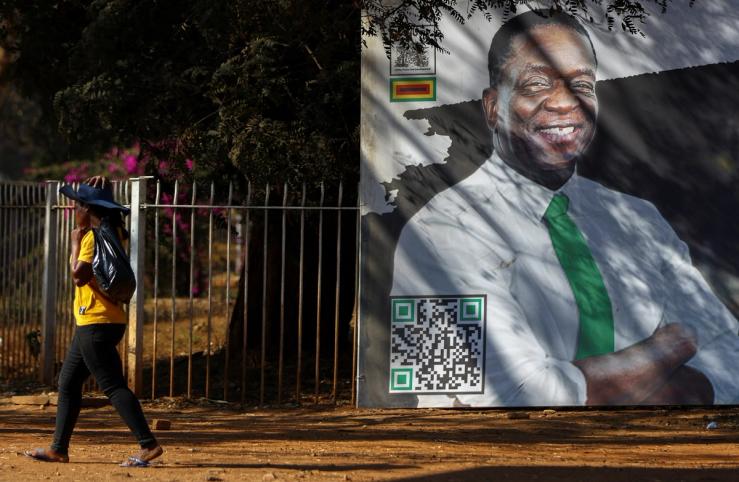The News
Zimbabweans head to the polls Wednesday in what will be the country’s second election since the 2017 coup that ousted Robert Mugabe.
Up for reelection is President Emmerson Mnangagwa from the ZANU–PF party which Mugabe was from and that has ruled the country since independence. Nelson Chamisa of Citizens Coalition for Change (CCC) is the main opposition candidate who narrowly lost to Mnangagwa in 2018.
SIGNALS
This election is all about the economy and job creation..."that's the only way forward for Zimbabwe,"• 1 says Al Jazeera's Africa correspondent Haru Mutasa. While issues like food security have improved drastically over the last four decades, the years-long stagnating economy means basic commodities are scarce. Regardless of who wins the election, "people just want to be able to know that when I get home, I can turn on the tap and clean, running water will come out that I can drink,” Mutasa says.
Al Jazeera, Zimbabwe Votes | Between Us via YouTube
A "crippling 'brain drain' of educated professionals,"• 2 particularly nurses and doctors, is yet another key issue for voters, the New York Times reports. More than 4,000 nurses have left Zimbabwe in the last two years, prompting the government to propose a law that would criminalize the recruitment of Zimbabwean health professionals. "You get the motivation to also leave because, honestly, we are just wasting our time," one doctor told the Times.
The election is "little more than a democratic charade,"• 3 according to the Economist's The Intelligence podcast. While election observers won’t see ballot stuffing, "the most impactful ways to tilt the playing field happen long before election day,” the podcast said. This includes misusing state resources like giving agricultural handouts to rural communities in order to sway the vote. A “shadowy organization” called Forever Associates Zimbabwe has billed itself as pro-Mgangagwa grassroots activist group, but local think tanks have suggested that it operates more as a domestic spy agency used to intimidate voters, according to The Intelligence
The Economist, Vote with no confidence: Zimbabwe goes to the polls
"Mugabe pales into a little example of dictatorship when you look at what’s happening now,"• 4 one opposition leader told the Financial Times. Experts said that political oppression has only heightened under Mnangagwa, with authorities increasingly arresting dissidents over the last year. Corruption is also rampant, with one think tank director saying it is "something Zimbabwe is doing to mimic Russia" as Mnangagwa oversees a Russian oligarchy-like system.
Financial Times, Mnangagwa’s presidency of Zimbabwe falls short of low bar set by Mugabe



